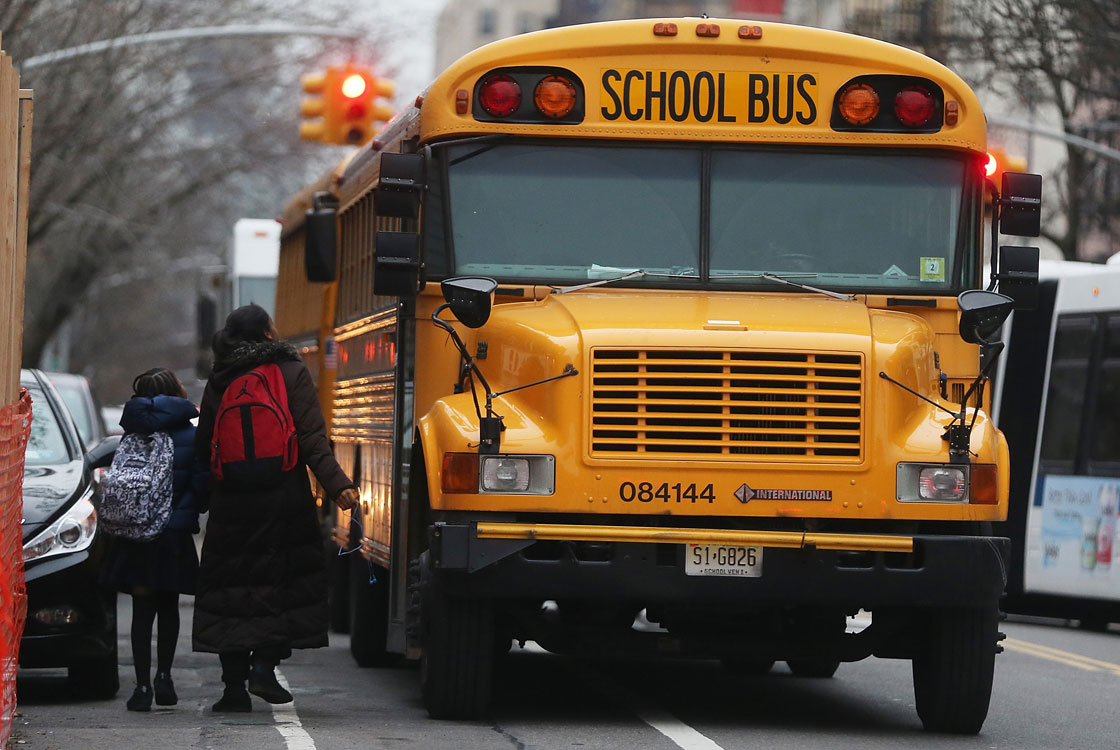As the possibility of a first day of school without bus drivers looms, local school bus operators are calling on the London District Catholic School Board (LDCSB) and the Thames Valley District School Board (TVDSB) to commit to arbitration.

Negotiations broke down Monday and no new talks are scheduled.
“Mediation is absolutely the first step, said Les Cross, regional manager for Elgie Bus Lines.
“We’ve taken this right out of the contracts that we had with them. It’s their process to go to mediation and if that fails go to arbitration, but it requires them to commit to the arbitration step if our discussions fail,” said Cross.
“That’s all we’re asking them to do, commit to their own process, but they’re not willing to do that.”
The last contract expired at the end of June.
Since operators are not currently under contract to work for the school boards, they aren’t in a position to strike. Rather than a work stoppage, the operators simply wouldn’t provide buses to the boards come Sept. 4.
One of the major issues surrounding negotiations is the minimum wage increase to $14 an hour that came into effect in January.
“That’s exactly where the bus drivers are per hour pay in this area,” said Rob Murphy, vice-president of Murphy Bus Lines.

Get breaking National news
“How we compare it is, a bus driver who’s driving a school bus at minimum wage is making the same amount as a student riding that bus,” he said.
Murphy added they just want to be able to pay their drivers a fair wage.
“Our drivers are the salt of the earth. They have a big responsibility transporting between 65 and 70 kids twice a day through inclement weather, through traffic issues,” he said.
“At the end of the day we want to make sure they’re back in the seat and in the bus for the first day of school.”
While the local school boards said they believe they’ve made an offer that will count for the minimum wage increase, Cross said looking at wage as the only problem oversimplifies the funding issues.
“Since the last contracts were struck in 2011 or 2012, $20 million has been taken out of the transportation funding. We don’t know where that money has gone, but certainly, the school boards have reaped the benefits,” said Cross.
“During that same period when everyone sharpened their pencil and put their best bid forward, costs escalated exponentially. Today we’re sitting at rates that are well below market,” he said.
- Lotto Max, Lotto 6/49 have huge jackpots up for grabs. Here are your odds
- Toronto Public Library refuses to let lost child use their phone to call home, apologizes
- Canada warns claiming asylum is ‘not easy’ with new global ad campaign
- More border enforcement resources coming before Trump’s inauguration: LeBlanc
Cross said they have data that shows their costs have increased by more than 25 per cent and said they are willing to share it with the boards.
He also said they had an independent accounting firm do comparisons across the province.
“The school boards know they’re operating at rates that are probably 35 per cent below market. They have a significant problem in their budget funding,” said Cross.
The wage comparisons to other boards are not relevant, said Jacquie Davison, superintendent of business and treasurer at the LDCSB.
“The needs of transportation are very diverse across the province. As you can expect, our boards cover one of the largest geographical areas, which makes comparing our boards to others incomparable,” she said
Cross added the data shows school bus companies in London are currently operating at a loss.
“Before we can even address the wage issue we have to address the fact that these contracts are expired, and long overdue to be reset,” said Cross.
WATCH: Thousands affected by school bus strike

Despite continuing issues around funding, both Cross and Murphy said if the boards commit to arbitration after mediation they’re willing to get back to the table.
Arbitration would only happen if mediation wasn’t successful in finding a resolution.
– With files from Christian D’Avino












Comments